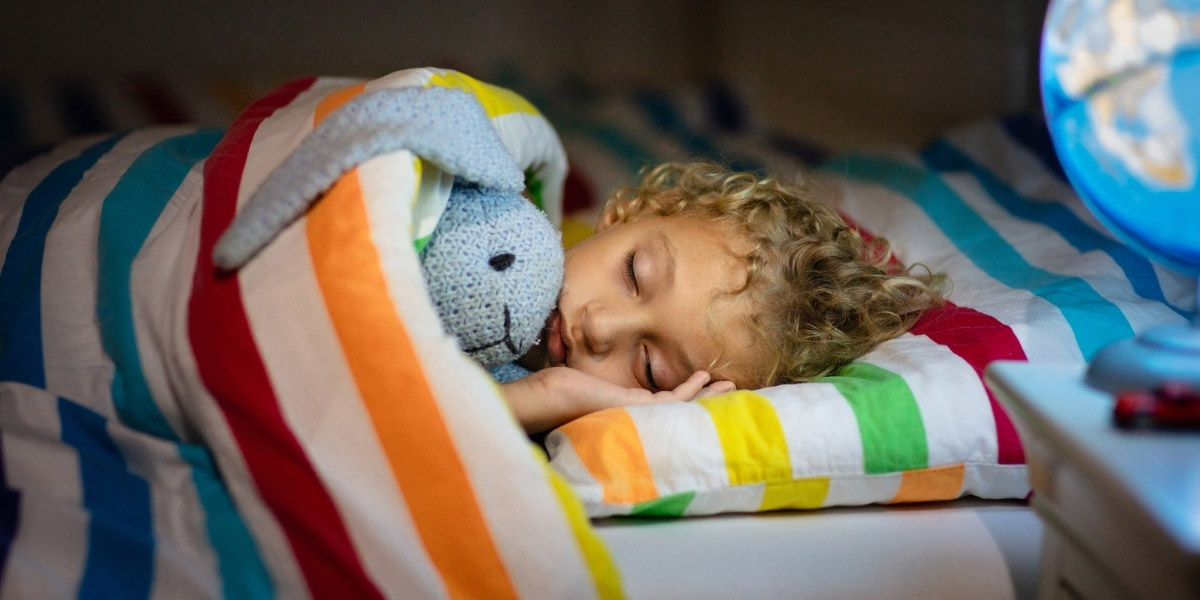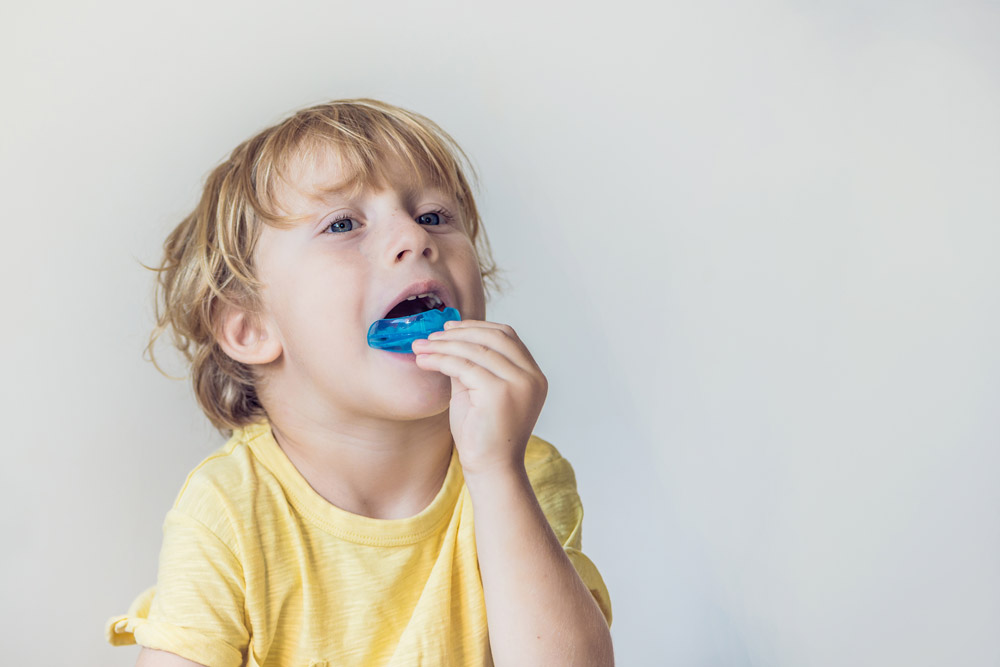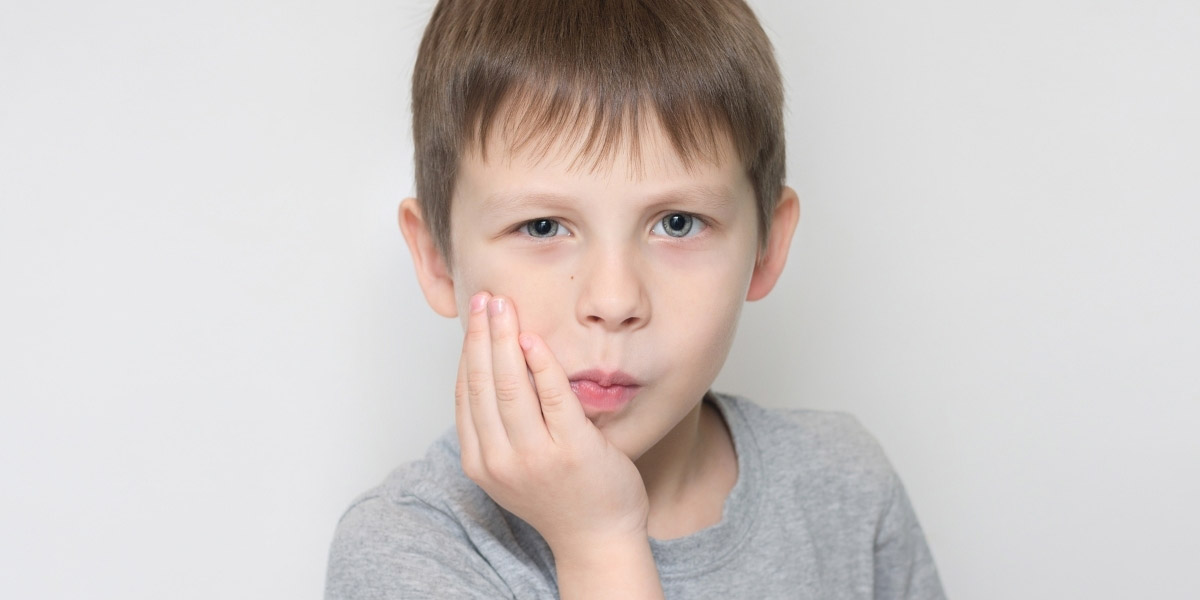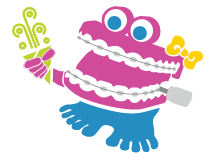Teeth grinding, or Bruxism, is something we see quite often at Palmetto Kids Dentistry. It is a common issue with children and one that causes a lot of concern with parents. The majority of kids grow out of their teeth grinding habit so there’s no need to worry, but Dr. Kimberly examines your child’s teeth at every visit to make sure everything looks good.
Why do children grind their teeth?
Children are prone to grind their teeth generally because they have new teeth coming in. The changes and discomfort happening in their mouths lead them to clench their jaw muscles and grind their teeth in a subconscious attempt to relieve some of the tension. Most kids outgrow this habit once they’ve lost their baby teeth and their permanent teeth have fully come in. For this reason Dr. Kimberly doesn’t typically intervene while they are in the middle of this transition. Your child’s age and whether they have all of their permanent teeth are determining factors when considering treatment.

How do you treat bruxism?
If your child has only baby teeth, we will make sure to notate that they are a grinder, but will only monitor the health of the teeth and signs of any wear. No corrections need to be made at this time but you can help your child be aware of when they are clenching their jaw throughout the day so they can learn to relax their muscles.
For kids who are grinding at night, there’s not much you can do. They are usually very heavy sleepers as well, so even if you were to wake them up, the grinding would continue as soon as they fall back asleep.

One of the biggest complaints we hear from parents is the noise. It can be loud and sound awful! This is usually the loudest as your child’s baby teeth fall out and the adult teeth come in. Dr. Kimberly starts keeping a closer eye out for any unusual wear and tear as the adult teeth start coming in, but any harm being done at this point is usually to the baby teeth that sit higher and are soon to fall out. We also look for signs of any abnormal bite issues developing indicating your child may need to see the orthodontist.
At this stage, the mouth is changing so much that implementing the use of a mouth guard is still premature. A new device would be needed every few weeks to keep up with the changes and growth, and that could get very expensive. Once all of the adult teeth come in and there are no ortho issues that need to be addressed, an over the counter night guard is the first treatment.

If your child responds well and the night guard is helping with the discomfort, we can make a custom mouthpiece for your child that will protect their teeth and help keep their jaws from staying so tight. Most children respond well to a night guard and do not require any further treatment. If issues persist, Dr. Kimberly may refer your child to a TMJ specialist to check it out.
Why does my teenager grind their teeth?
The main reason people grind their teeth is discomfort in the mouth, whether they have teeth coming in or another oral health issue that’s causing pain or tension that leads them to clench their jaw and grind their teeth. As Dr. Kimberly examines your child’s teeth, she will let you know of any signs of bruxism or other potential concerns you need to be aware of. Be sure to let her know of any tooth sensitivity or jaw tenderness during dental visits.
Sleep disorders, such as sleep apnea, endocrine disorders, and other medical conditions can cause teeth grinding. And there can be a variety of psychological factors causing chronic teeth grinding as well, stress being the biggest one.

Why is teeth grinding harmful?
For young kids, you may hear them complain about a sore jaw, earaches or headaches. All of these stem from tight jaw muscles. Older kids and teenagers may experience the same. If the habit continues or becomes more severe, they can wear their teeth down so much that they become stumps. Chipped enamel and fractured teeth can be a result of excessive wear as well and your child may need to get a root canal, crowns, or implants to restore the look of their smile.

Constant grinding causes loosening in teeth and unusual sensitivity. Children can develop improperly aligned teeth or even missing or crooked teeth. Not good!
How can I help my child stop grinding their teeth?
While most kids will outgrow it, you can help your child eliminate the grinding habit by reminding them to not clench their teeth whenever they’re unaware they are doing it. Daily reminders will help, as well as a calming bedtime routine. An evening bath, soothing music, and talking with your child to ease any fears they have about nighttime can all help reduce the severity of their grinding during sleep.
In the same way, older kids and teenagers can practice relaxing before bedtime, doing stretching exercises, and getting a massage on a regular basis to reduce tension. They can also hold a warm wet cloth to their jaw to increase the blood flow to these muscles and relieve the tension they’ve been holding.

During the day, have your teen intentionally relax and release the tension in their face any time they notice they are clenching their jaw. It may take some time to create this new habit of keeping a relaxed jaw and not grinding their teeth during the day, but training the facial muscles to stay relaxed will help them stay at ease as they sleep as well.
It’s also important to take practical steps to address any root issues like anxiety, nervousness, anger, frustration, and stress. Help your kids find a few ways to reduce their stress, start an exercise program, and try to avoid caffeine like that in coffee or chocolate.
Medically speaking, you may need to talk to a TMJ specialist and get a CT scan of your child’s jaw to determine the best course of action. Treatments for teens and young adults can range from over the counter meds to Botox injections in an effort to relax the muscles causing teeth grinding.
Can bruxism be cured?
Yes, of course.

Finding the cause of your child’s teeth grinding and using some of the tips above, it can be “cured” or reduced. Teen and young adult bruxism is mainly caused by stress. A change in routine and stress relievers, learning to relax the muscles, and using a protective mouthpiece can all help cure their bruxism.
If there is any dental damage caused by teeth grinding, talk with Dr. Kimberly about the restorative dental procedures that can correct any issues.


